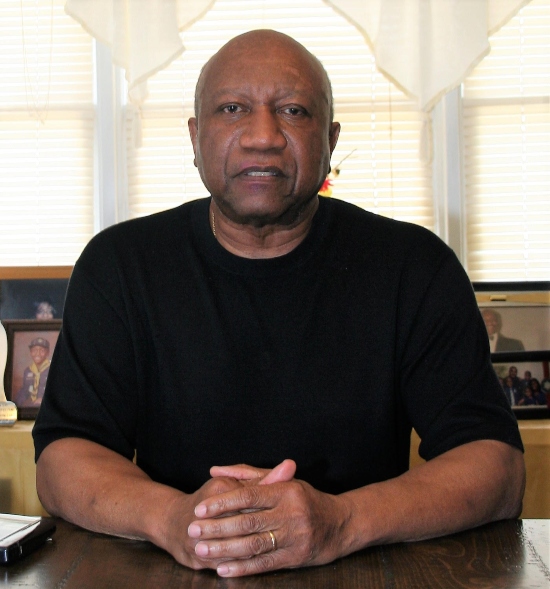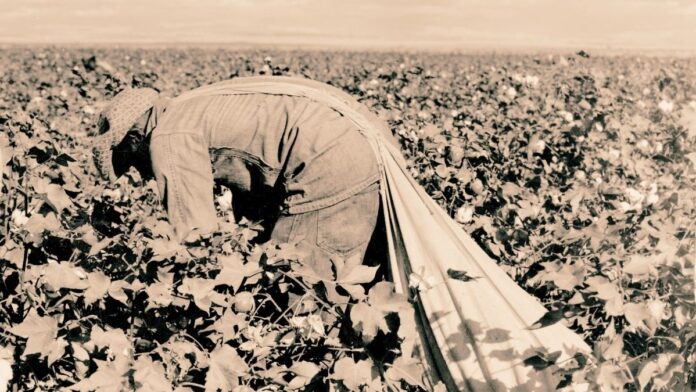By Michael Daniels
Journal Staff Writer
Former local BP shift supervisor, Jim McCoy Jr. feels that the young black people of today have no concept of how life was for African-Americans following the official end of slavery in the United States. It was December 18, 1865, when the Thirteenth Amendment was adopted as part of the United States Constitution. The amendment officially abolished slavery in America, and immediately liberated more than 100,000 enslaved African people. This however was not the absolute end of slavery in the United States; it may be better characterized perhaps, as the beginning of the end of legalized human bondage of our ancestors. “Many freed Africans, now American citizens, continued to live in the same conditions of slavery long after the signing of the Emancipation Proclamation” Mr. McCoy said. “The end of slavery and the freedom of the slaves came much quicker in the north than it did in the south,” He gave as an example the celebration of the holiday Juneteenth, now celebrated today by Black Americans, as a historical fact of when many slaves who were still being held in servitude in the state of Texas, didn’t even know, nor were they ever in informed of their freedom until a year later after the American Civil War had ended. He also cites social economics today as the true judge of freedom, saying, “If you don’t earn enough money to live for your pursuit of happiness, how free can you be in a capitalistic society controlled by the almighty dollar in a consumer-driven materialistic nation?”

Mr. McCoy draws this wisdom from his own life experience. Born in Turrell, Arkansas, a town of approximately 700 people at the time. His date of birth was June 2, 1946, a relatively short time after slavery ended. This is where he spent a significant part of his childhood. There he went to school Monday through Friday in the same building that was the church on Sunday. On a school day, he had to get up early when the sun came up to make sure there was wood for the stove, so his mother could cook breakfast. He also brought water in from the outside well, so they could wash up, his house had no running water. The house also didn’t have a bathroom, those personal needs were taken care of in the outhouse. Even though his family did not live on a farm, it was a rural area. “Most Black people did not own any land, the only people who had land in those days were the white farmers who grew cotton. If you worked for them, you could live in one of their houses on their land, these houses were decent homes and had an inside water pump and limited electricity. Eighty-five (85%) of the black people who lived and worked in Turrell in those days, worked in the cotton fields,” said Mr. McCoy.
“After breakfast, we’d get dressed for school, and we walked down a dirt road to the paved road. On the paved road we had to watch out for the yellow school bus full of white kids who went to a separate school. When they would pass us, they would call us the N-word, this was very traumatic,” he said. “Our parents had taught us to ignore them, but it was still painful. It was a time when you could not talk back to white people. This was the way of life in that day, we as black people were 80 plus years out of actual slavery in America, on paper.”
“In those days we could not even go in the front door of the store front grocery store. Black people had to come in the back door, then go to the back of the store and wait. The clerk would wait on the white people in the front first, and when they got time, they would wait on us. If a white person came in while they were fulfilling our order, they stopped servicing us, and helped the white person. While servicing them, we again had to go to the back of the store, and wait to be called. Needless to say, there was no quick trip to the grocery store for us,” explained Mr. McCoy.
Finally, when I was eleven, we migrated up north to Toledo, Ohio in the early ’50s, and I had a culture shock, because in Turrell you did not even talk to white people unless spoken too. You couldn’t walk on the sidewalk with white people, if you saw them coming you had to move out of the way. You couldn’t go in the front door of most businesses, and there we segregated water fountains. Our fountain was in the hot sun, white people’s fountain was across the street in the shade. The closest we got to white people were if they were giving us instructions or orders on what they wanted us to do in the fields.
The most important event of my life was my parents moving the family to Toledo, Ohio, it changed our lives. I had a culture shock going to school and talking with white children my age, as well as walking with them on the sidewalk, we just didn’t do that in Turrell,” said Mr. McCoy.
“My late parents Jim Jr., and Dorthy Mae, are my hero’s for bringing their family up here, and I appreciate the life that we (sisters) all have now, because of what they did for us. One of the best things about moving up here was there were plenty of places you could go and get a good job. My parent chose Toledo because we had relatives here. Also, moving here was my first time leaving Turrell, Arkansas, and it was a fantastic thing,” he said.
Unfortunately, at 75 years old Mr. McCoy says he looks at the world and sees, “As much as things changed the more, they stayed the same. I look back at my childhood and the one thing that is still the same is the way white people treat black people. Things have changed overall, but underneath it’s the same. The people that have it, and those who don’t are still working in the cotton fields. The cotton fields might be called GM or BP or whatever, but you are still working for the same caliber of people that my ancestors worked for in Turrell, Arkansas. We as black people must get educated and demand our respect. As a child growing up, I didn’t know I had that type of power. I wish I could take some young people back to Turrell, Arkansas in the ’40s, and see how, or if, it would change their lives. Hopefully, they would see that they can take charge of their destiny and demand respect from others and respect themselves.”






